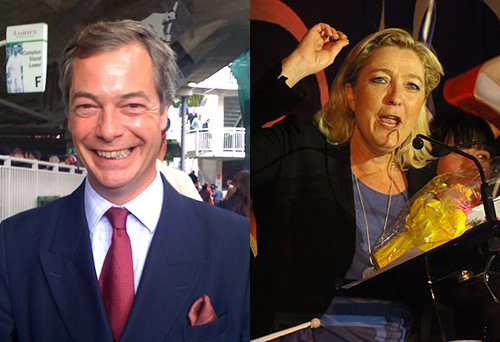
Pro-Life Citizens’ Initiative Worries E.U. Scientists
April 22, 2014
The Changing Face of European Politics?
April 22, 2014Armenia’s surprise decision to abandon a planned Association Agreement with the European Union in favour of joining the Russian-led Customs Union derailed its Western orientation and deepened its position within the Russian orbit. The u-turn triggered a new perception of the Armenian government as insincere, weakened the course of reform, and undermined the credibility of reformers within the government. Yet even as it pushes ahead with its stated goal of joining the Customs Union, good relations with Europe remain important.
Both Yerevan and Brussels are committed to salvaging some sort of relationship from the aftermath of the decision. But the recent resurgence of Russian power suggests that Armenia will face greater pressure from Moscow, resulting in even less room for manoeuvre. In a new ECFR policy memo, Richard Giragosian argues that the EU needs to recognise Armenia’s limitations as a partner and come up with new ways to engage the country.
What will Russia do?
- Armenia has lost an important opportunity to deepen its ties with Europe. Its dependence on Russia is now deeply entrenched, and Moscow is visibly ratcheting up bilateral pressure and further isolating Armenia.
- Moscow may now target Yerevan’s expanding role within Western security structures. Having grown increasingly impatient with the Armenian embrace of Western-style defence reforms, Russia may try to limit Yerevan’s defence reform and modernisation by putting a stop to Armenia’s deepening ties with NATO.
What the EU can do
- The EU now needs to explore alternative measures to engage Armenia, with calculations based on a more realistic image of the limits and liabilities of the country.
“Both Armenia and the EU need to face up to the fragility and vulnerability of the Eastern Partnership countries and to a resurgent Russia that seems intent on pursuing confrontation over co-operation and provoking conflict over consensus.” – Richard Giragosian
This publication is part of a series on publications on Eastern Partnership countries after the Vilnius conference.
Download related publications:
Andrew Wilson – “Supporting the Ukrainian revolution”
Stanislav Secrieru – “Can Moldova stay on the road to Europe?”
